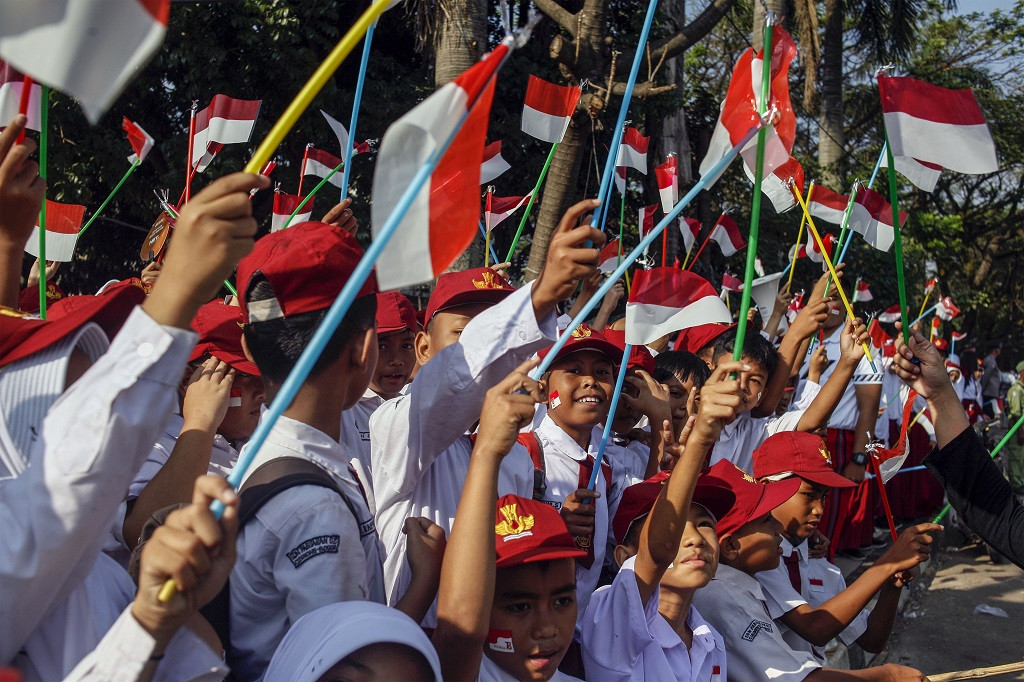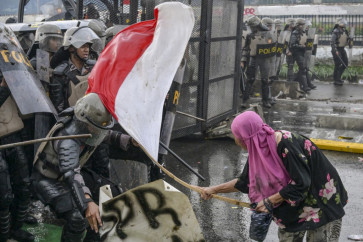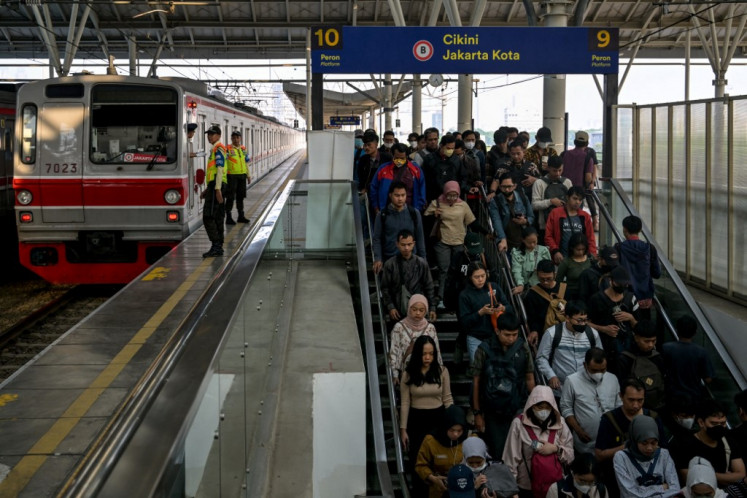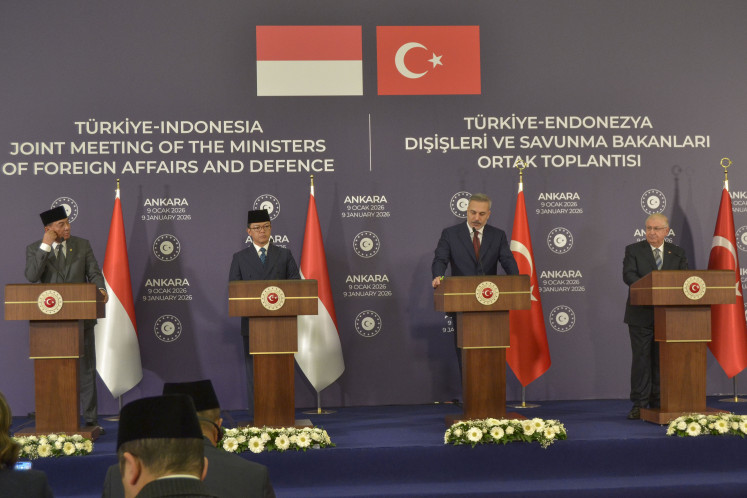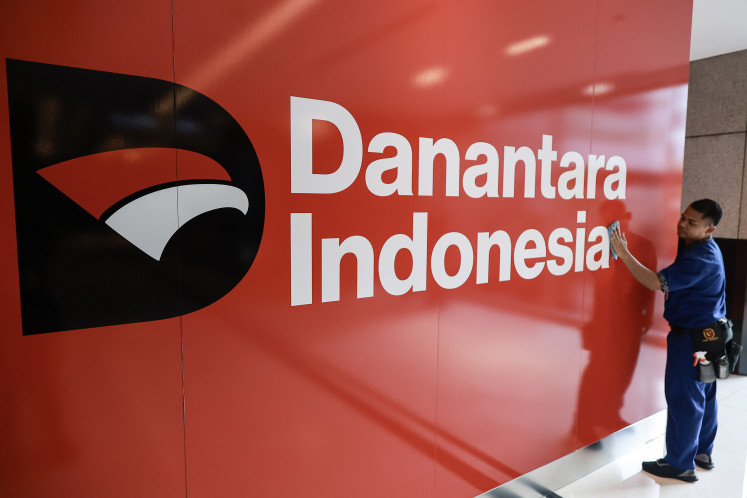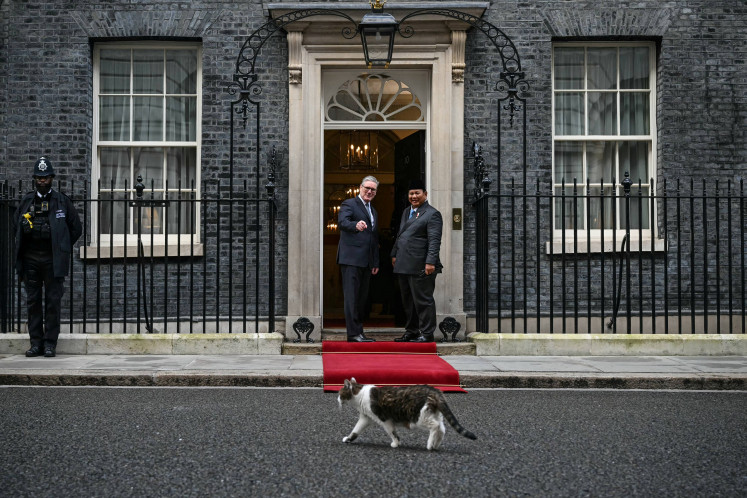Popular Reads
Top Results
Can't find what you're looking for?
View all search resultsPopular Reads
Top Results
Can't find what you're looking for?
View all search resultsNation in waiting
Getting Indonesia to the finish line in 2045 will be a massive undertaking and one that will require political stability, a very valuable commodity in a country with a multi-party system.
Change text size
Gift Premium Articles
to Anyone
As Indonesia celebrates its 78th Independence Day on Thursday, the nation again takes stock of its progress and achievements.
And especially as the nation approaches its centenary, politicians, policymakers and many in the government have for some years been asking the very important question: Where will Indonesia be in 2045?
In terms of economic progress, will Indonesia pull through and manage to escape the middle-income trap and turn itself into a developed nation like Singapore or China?
There is also the question of whether Indonesia can become a superpower country that others in the region must reckon with, militarily and politically.
These are questions that leaders in the past had to wrestle with and some of them came up with plans to realize the dream.
Soeharto, an authoritarian leader, adopted a development strategy, in the mold of economist Rostow's stages of progress, under which Indonesia would "take off" in the fifth stage of his plan, known as a five-year development plan (Repelita).
Of course in the case of Soeharto we know that economic development had to take precedence over issues like democracy, freedom and human rights, that stability and continuity were key to achieving material progress.
We know that under Soeharto, freedom in society was largely non-existent.
After 25 years of democracy, which demands a regular turnover of political authority, a situation that forces policymakers to craft their policies only on a short-term basis, we have begun to hear politicians, power brokers and business players talking about their big dreams for Indonesia.
The milestone that they use is of course Indonesia's centennial in 2045.
These people couch the debate on the country's progress in terms of what to do with the youth bulge, the country’s demographic bonus that will propel the much-needed growth that it needs to achieve developed-nation status.
Other questions revolve around what kind of industrial policies are needed to accelerate economic growth. Will downstreaming be the key to industrialization or should electric vehicles be the focal point of that policy?
While the debate on industrial policy is ongoing, questions over infrastructure development are more or less settled; the country needs a lot of roads, bridges, airports and harbors to support the expansion of economic activity.
Many in the political establishment appear to have also settled on the question of political stability and continuity.
Getting Indonesia to the finish line in 2045 will be a massive undertaking and one that will require political stability, a very valuable commodity in a country with a multi-party system.
These days, politicians have begun to talk about the idea that whatever the outcome of the next election or whoever is elected president, the winner must continue the projects and programs initiated by the outgoing administration.
And then there is the option of not having an election at all, so that the incumbent administration can complete its development goals beyond the term limit stipulated by the Constitution. Many may have forgotten about this, but it was only last year that we were faced with a real possibility of the 2024 general elections being delayed.
After all, why bother holding an election when political authority in Jakarta can install dozens of interim governors, mayors and regents in the interregnum period between 2022 and 2024 to carry out policies from the central government?
The end should not justify the means.
There is nobody in the country who could argue against the idea of Indonesia becoming a major economic powerhouse in the next 20 years. After all this is the mandate from the 1945 Constitution or at least the part where it orders the government to bring about prosperity for the people.
Nonetheless, the idea of people enjoying their political freedom and the creation of material wealth should not be mutually exclusive.
The truth of the matter is that Indonesia in the past 25 years, with its raucous and at times chaotic democracy, has managed to create unprecedented growth that has lifted millions out of poverty.
That is certainly something worth celebrating this Aug. 17.

